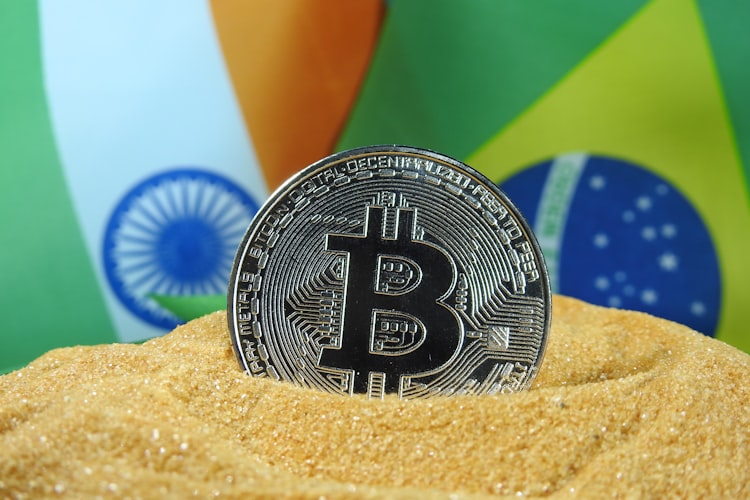
India’s Stand on Cryptocurrencies
Recent occurrences in the crypto world, including Bitcoin’s freefall from $65,000 in April 2021 to below $40,000 in response to Elon Musk’s statements, have refocused attention on cryptocurrency governance legislation in India. Around 7 million Indians have already invested more than $1 billion in cryptocurrencies in over a decade. The government faces a difficult task in allowing the fin-tech sector to develop while simultaneously safeguarding the stability of the country’s financial system.
Despite its worries about cryptocurrencies, the government is developing its own digital money. The Reserve Bank of India’s upcoming digital currency is likely to use a private blockchain platform, which will reduce the transaction settlement processes. The government does not want to be left behind in the new age of technology. Therefore, it plans to make use of the advantages that blockchain technology provides.
Cryptocurrency’s legal status in India
Cryptocurrencies are not illegal in India. So, if one wants to buy, let’s say, Bitcoins, they can do so, and start trading in it. India, however, currently lacks a regulatory framework to manage cryptocurrencies. The government established an Inter-Ministerial Committee (IMC) to investigate virtual currencies on November 2, 2017. The paper, which was followed by a draughts law, highlighted the benefits of distributed ledger technology and identified many applications for its use in India, including banks and other financial organizations, notably in financial services.
On the other hand, the Centre was concerned about its misuse and planned to implement a blanket ban in India. According to recent rumours, cryptocurrency may not be completely banned in India. The Centre may shortly establish a panel to oversee them. The decision was taken after various cryptocurrency exchanges urged the Centre to regulate rather than prohibit virtual coins.
Understanding the Basics
1.1 Bitcoin

Bitcoin is a cryptocurrency that was created in 2008 by an unidentified person or group of people under the pseudonym Satoshi Nakamoto. It began in early 2009 when its implementation was made available as open-source software and a network. It is the first decentralized digital currency without a central bank that can be sent from one user to another on the peer-to-peer bitcoin network without the use of middlemen. In other words, there are no banks or central/regulating bodies involved in the transactions.
There are no real bitcoins; instead, balances are held on a public ledger that everyone can see and that is validated by a massive amount of processing power, just like all bitcoin transactions. Bitcoins are validated by a network of nodes and miners rather than being issued or supported by banks or governments. A transaction in bitcoin is a record that informs the network of a bitcoin transfer from one owner to another, which is verified by a network of decentralized parties.
Digital key pairs, Bitcoin addresses, and digital signatures are used to establish and access bitcoin ownership. Digital keys are made up of a mathematically connected Private-Public key pair formed with the Elliptic Curve Digital Signature Algorithm and stored offline (and occasionally online) (ECDSA). The SHA-256 hash function (other projects have used other hash functions) is used to verify data integrity when transactions are broadcast over the network (i.e. to establish that data has not been corrupted or modified during transmission). All bitcoin transactions are saved in blocks, which are then linked (or “chained”) in a chronological order to form the “Blockchain.”
Cryptographic hash functions are commonly employed to check block integrity and establish the Blockchain’s chronological order. Hash functions are also employed in the Proof-of-Work (PoW) algorithm, which is a method of obtaining a network consensus and is a key component of the bitcoin mining algorithm. Different hash function consensus methods, including Proof of Stake and Proof of Identity, are utilized in many other Crypto assets and are being tested to create a process that is secure, efficient, and environmentally friendly.
1.2 Blockchain
A blockchain is a distributed ledger in which transactions are preserved indefinitely by attaching ‘blocks.’ From the genesis block to the most recent block, the blockchain serves as a historical record of all transactions that have ever taken place. The blockchain was primarily introduced into the Bitcoin network as a Representation Proposed Regulatory Framework for Crypto Assets to make transactions incorruptible, verified, and more dependable.
1.3 Distributed Ledger Technology (DLT)
The Distributed Ledger Technology (DLT) is a decentralized database that is administered by various contributors across multiple nodes. It may or may not be open source or decentralized. It might be an enterprise solution in which transactions are documented using a hash, which is an unchangeable cryptographic signature.
Non-Fungible Tokens
Non-Fungible Tokens (NFTs) are incompatible, one-of-a-kind assets. This means that you can’t use another “similar” item to replace an NFT. An explosion of interest in NFTs struck. The peak price for Mike Winkelmann’s — or Beeple as the digital artist is popularly known as — artwork was $ 69.3 million in early 2021.
If two people have Bitcoin, for example, they are clones of each other and can swap Bitcoins of the same value. NFTs, on the other hand, are incompatible because all tokens are works of art in their own right. NFTs are one-of-a-kind digital assets, with each token reflecting a unique value.
NFT debuted on the Ethereum Network in August 2017. CryptoKitties, a digital collectible game that allowed users to buy, breed, and sell virtual cats, was one of the first Tokens. Since then, the list of NFTs has grown to include digital real estate, video game objects, digital art, and music.
WazirX, India’s largest cryptocurrency exchange by volume, has opened the first local market for NFTs to capitalize on the recent spike. The platform lets you exchange digital assets and intellectual property with other digital products and services, such as artworks, music files, films, applications, and even tweets. Indian producers can sell digital goods on the blockchain-based NFT marketplace and then earn royalties, according to the business.
Copyright and plagiarism have long been a problem for internet creators, particularly those who create digital art. On the one hand, most social media networks automatically authorize users’ permission to utilize their content. On the other hand, duplicating the media for private use requires only a few mouse clicks and does not require payment.
The NFT solves this difficulty by acting as a virtual certificate of authenticity, tying the original digital artwork to the token and giving it the same status as an artist’s signature on tangible work. The token can’t be fabricated because it’s on the blockchain and can be quickly verified by anyone on a public network.
The true original retains its worth because of the NFT allocated to it, allowing authors to freely distribute copies of their work on social media. The ERC-1155 NFT, as previously indicated, is particularly useful as tokens for limited edition collections of artworks. Websites like Makerspace have sprung up as a marketplace for collectors and purchasers to promote a much quicker and more transparent process. Websites like Makerspace have sprung up as a marketplace for collectors and purchasers, facilitating a much quicker and more transparent process of purchasing and selling digital art, similar to how financial securities trade online. By bypassing galleries and curators, artists who have struggled to break into the elite of the art world can now present their work to a considerably bigger audience.
However, there are concerns that NFT’s soaring value is a potentially fragile speculative bubble that could burst at any time, taking investors with it. Many objects to the NFTs’ value are based on artificial digital scarcity. Furthermore, the technology’s recent success has resulted in hundreds of thousands of works being uploaded to its platforms, obstructing its use.
India’s Framework for Cryptocurrencies
In circumstances where the individual obtaining the gains is an Indian tax resident or the crypto is said to be domiciled in India, cryptocurrency transactions are taxable in India. While there is some doubt regarding the taxability structure of crypto-currencies, it will probably be taxed under the heads of income from other sources or under speculative transactions since it is not considered as a currency.

The Reserve Bank of India (RBI) issued a circular in April 2018 urging banks to ensure that consumers dealing in cryptocurrencies do not have access to banking services. After years of skepticism among RBI officials regarding the authenticity of virtual currencies generated by private parties, the circular was released.
The central bank has regularly expressed concern about the alleged dangers that unregulated private currencies represent. Many citizens interpreted the 2018 circular as an attempt to prevent citizens from purchasing cryptocurrency. The RBI effectively outlawed any large rupee investment in cryptocurrencies by prohibiting banks from assisting transactions involving cryptocurrencies. Considering that it is emerging as the next big asset of the financial world, regulating the crypto trade would be a better option.
In March, the Supreme Court invalidated the RBI’s 2018 circular in the case of Internet and Mobile Association of India vs. Reserve Bank of India. The Supreme Court stated that because there is no legislation prohibiting the purchase or sale of cryptocurrencies, the RBI cannot impose unreasonable limitations on cryptocurrency trading. The court believed that such limits would infringe on citizens’ fundamental rights.
Huge volatility in the value of Virtual Currencies (VCs) has been noticed in the recent past. Thus, the users are exposed to potential losses on account of such volatility in value. It is reported that VCs, such as Bitcoins, are being traded on exchange platforms set up in various jurisdictions whose legal status is also unclear. Hence, the traders of VCs on such platforms are exposed to legal as well as financial risks.
While overturning the RBI order, the Supreme Court merely ruled that there is no legal basis for imposing severe restrictions on cryptocurrencies at this time. Once a law prohibiting the use of cryptocurrencies is passed in Parliament, the court’s position may change. The RBI, on the other hand, may have been obligated to give the latest explanation because it was recently mentioned by a few banks.
Because of the legal uncertainties around cryptocurrencies, banks have been hesitant to allow their customers to trade in them. Meanwhile, the Centre is debating whether or not to outright ban cryptocurrencies. A ban can and will create a panic situation where many will completely dispose of their crypto assets. However, a large chunk of the investors will not dispose of their assets and instead will be forced to work in unregulated environments and contribute to the formation of an underground economy or shadow economy.
What is the future of cryptocurrencies in India?
Cryptocurrency skeptics argue that there is solid cause to think that governments all around the world will outlaw all cryptocurrencies at some point. They contend that governments and central banks will not allow their monopoly power over money to be diluted.
The Reserve Bank of India (RBI) instructed banks on May 31 not to use its 2018 directive as a pretext to refuse banking services to cryptocurrency traders. It claimed that its 2018 order was overturned by the Supreme Court in March of this year and that banks should no longer mention the order.
The central bank, on the other hand, has asked banks to proceed with other due diligence procedures. On this subject, the Indian government has sent mixed messages. In March, Finance Minister Nirmala Sitharaman stated that the use of cryptocurrencies in India will not be completely prohibited. Cryptocurrency and Regulation of Official Digital Currency Bill, 2021, which is said to contain clauses outlawing the usage by prohibiting all private cryptocurrencies and lay down the regulatory framework for the launch of an “official digital currency”, was to be introduced in Parliament’s Budget session, but was held up as the government continues discussions with stakeholders. The future of cryptocurrencies in India, thus, still hangs in the balance.

A committee has recommended that India’s government follow Singapore’s lead in regulating cryptocurrency. Singapore has adopted preemptive measures to prevent unethical activities without threatening technology advancement, according to the Blockchain and Crypto Assets Council (BACC), which advocates for crypto industry legislation. This is something India may learn from. The members of the committee spoke at a virtual conference titled “Evolving Crypto Regulatory Framework: Developments in India and Singapore.” BACC is a member of the Internet and Mobile Association of India (IAMAI), an industry association that represents all of India’s main internet and technology enterprises. Singapore revised its Payment Services Act earlier this year, as part of which it said entities facilitating transmission, exchange, or storage of cryptocurrencies should hold a license to operate.
In Singapore, cryptocurrency is subject to more stringent restrictions and regulations imposed by the central bank. India’s crypto business is governed by no legal structure. India’s cryptocurrency space will continue to remain unregulated unless a proper regulatory framework is introduced. While the Supreme Court’s decision has given the crypto market a boost, and cryptocurrency start-ups in India are expanding and launching new products, there are some concerns about safety and a possible ban in the country. Despite this, cryptocurrency start-ups are positive about the immense potential and future of cryptocurrency in India, and they are lobbying the government to avoid imposing a blanket ban.
Also read: INDIA’S 1st TRANSGENDER COMMUNITY DESK
